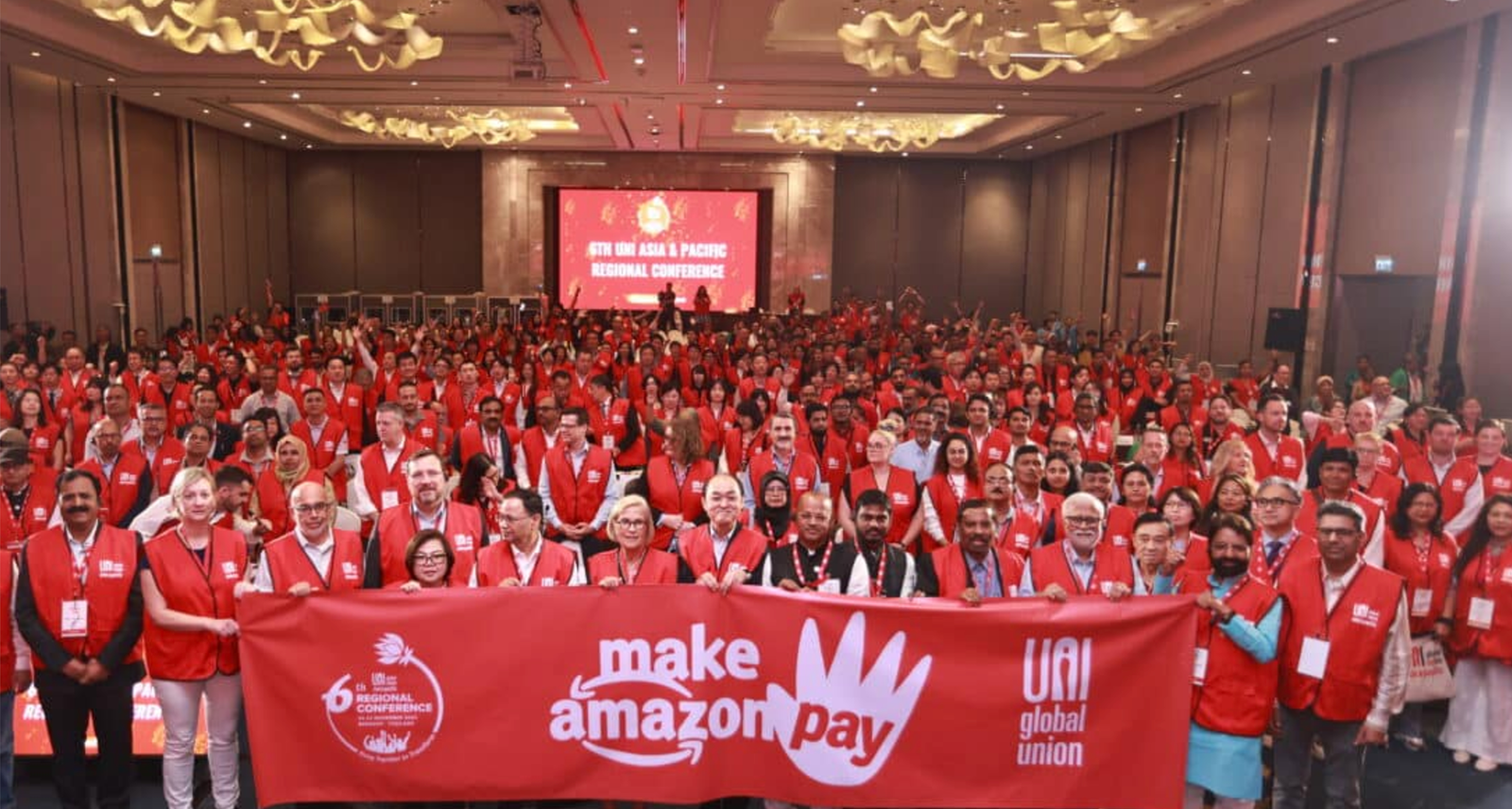E-commerce
Global Amazon Strike Disrupts Black Friday: Workers Demand Fair Pay and Justice
‘Make Amazon Pay’ protests involve thousands of workers in cities across the United States, Germany, the United Kingdom, Brazil, and Japan. Demonstrations are also taking place in countries like France, India, and Bangladesh, with specific grievances tied to local working conditions. For instance, Indian workers are demanding fair treatment after enduring harsh heatwave conditions, while garment workers in Bangladesh highlight unsafe workplaces and insufficient wages.
Workers at Amazon, the world’s largest online retailer, are taking collective action across 20 countries during the busiest shopping weekend of the year. The “Make Amazon Pay” strike, organized by UNI Global Union and Progressive International, began on Black Friday and is set to continue through Cyber Monday. Employees and allied groups are calling for increased wages, better working conditions, and environmental accountability, challenging Amazon’s business practices.
A Global Movement for Change
The protests involve thousands of workers in cities across the United States, Germany, the United Kingdom, Brazil, and Japan. Demonstrations are also taking place in countries like France, India, and Bangladesh, with specific grievances tied to local working conditions. For instance, Indian workers are demanding fair treatment after enduring harsh heatwave conditions, while garment workers in Bangladesh highlight unsafe workplaces and insufficient wages.
In Germany, strikes are reported in major cities, including Dortmund, Graben, and Koblenz. The protests, organized by the Association for the Taxation of Financial Transactions and Citizen’s Action, extend to multiple cities in France.
This year marks the fifth annual “Make Amazon Pay” campaign, which aims to hold Amazon accountable for its labour practices, environmental policies, and influence on democratic processes. According to Christy Hoffman, General Secretary of UNI Global Union, “Amazon’s relentless pursuit of profit comes at a cost to workers, the environment, and democracy. Workers’ desire for justice cannot be stopped.” Here is the press release issued by UNI Global Union.
Impact on Holiday Deliveries
Economists warn that the strike around Black Friday could disrupt holiday deliveries, potentially delaying shipments during one of Amazon’s most critical sales periods. In 2023, Amazon accounted for 18% of global Black Friday sales, generating over $170 billion in holiday revenue. The timing of the protests underscores workers’ strategy to leverage Amazon’s dependence on its workforce during peak shopping events.
Amazon’s Response
Amazon has defended its labour practices, stating that it offers competitive pay, comprehensive benefits, and safe working environments. The company announced a $2.2 billion investment this year to increase wages for U.S.-based fulfilment and transportation employees. Amazon claims the average hourly pay now exceeds $22, with benefits that include health insurance, paid leave, and tuition reimbursement starting on the first day of employment.
A spokesperson for Amazon labelled the strike organizers’ claims as “intentionally misleading,” emphasizing the company’s efforts to provide a positive workplace environment. However, critics argue that Amazon’s anti-union stance undermines workers’ rights, particularly in the U.S..
Workers Demand Change
The strike highlights broader issues within Amazon’s global operations, including allegations of union-busting, unsafe working conditions, and environmental negligence. James Schneider, Communications Director for Progressive International, noted that Amazon adapts its behaviour depending on the jurisdiction, engaging more cooperatively with unions in some countries while resisting unionization efforts in others.
In recent years, Amazon workers have seen significant pushback. In 2022, employees in Staten Island, New York, successfully unionized, marking a historic first for the company. Despite subsequent setbacks in other locations, collective action continues to gain momentum. Rising inflation and the post-pandemic cost-of-living crisis have further fueled workers’ resolve.
View this post on Instagram
A Broader Movement
The “Make Amazon Pay” campaign is part of a growing wave of global labour activism. Activists emphasize that their fight extends beyond Amazon, aiming to create a world where human dignity outweighs corporate profits. As Progressive International’s Co-General Coordinator Varsha Gandikota-Nellutla stated, “Amazon is everywhere, but so are we. By uniting across borders, we can force Amazon to change and prioritize people over profit.”
As the strike continues, its impact on Amazon’s operations and the broader labour movement remains to be seen.










































